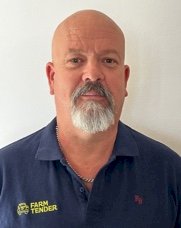NSW Farmers invited to precision agronomy course
- By: "Farm Tender" News
- Cattle News
- Dec 03, 2017
- 576 views
- Share

There is a lot of talk about precision agriculture, but what does it mean and how can growers get a piece of the action? A hands-on precision agronomy course could be the ideal place to start.
A Precision Agronomy Training course is being offered by Tocal College through the AgSkilled program, a training initiative being led by the New South Wales Government, in conjunction with the Grains Research and Development Corporation (GRDC) and Cotton Australia.
The AgSkilled initiative, announced in December 2016 by the Deputy Premier of NSW and Minister for Skills John Barilaro, has allocated $14.7 million over three-years to increase staff skill levels and attract industry newcomers to the grains and cotton industries to improve farm productivity and profitability.
AgSkilled Project Co-ordinator Claudia Vicary said the first courses offered under the initiative started in July this year and more courses were being developed for delivery in regional and rural areas to meet industry needs.
“Precision agriculture and how growers can use this new technology in a practical way to improve on-farm profitability is an important issue for grain growers,” she said.
“Building understanding and knowledge at a grassroots level may allow growers to make informed choices about how precision agriculture, or in this case precision agronomy might benefit their businesses.”
JMAJ Precision Managing Director Adrian Roles said for growers, knowledge was power as the industry grapples with data ownership issues.
“Big data is definitely coming, and I personally see now as a once in a career opportunity for growers to really take ownership and ensure they are controlling their own data and how they use it to drive precision on farm,” Mr Roles said.
“Growers are increasingly embracing precision ag, but there are a lot of aspects to be considered, and by upskilling in this area they can cut through the noise and hype to decide whether its effective and useful for them.
“There is skill involved in combining your own knowledge and ground truthing to ensure precision agronomy is effective in your farming system. I warn people that precision ag is a slight misnomer and it would be better labelled ‘slightly more accurate’ ag, unless its combining effectively with what you already do,” he said.
Mr Roles is one of the authors of the Precision Agronomy Training course being offered through the AgSkilled initiative free to industry.
“The course essentially takes growers through the types of data that will be collected, and how to combine this data to get it working for them. We have standardised data and spatial data, but we also need to look after our data density,” he said.
“If we aren’t using dense data, we are essentially telling our software to guess, so the more we populate the better.
“Even the best agronomist in the world can’t make good decisions based on bad data, so the investment of time for this course can potentially pay real dividends to your on farm tools.”
Tocal College Business Development Officer at Trangie, Glen Walker said the course could bridge the gap between the data already being collected on-farm and analysis that could help guide on-farm decision making.
“Unless you have an old header, your machinery is collecting a lot of data each time it’s in the paddock. That data can then be layered with some Electro Magnetic (EM) or Electric Current (EC) data, then your Normalised Difference Vegetation Index (NDVI) and then maybe some soil testing to convert all those numbers into a tool to use on-farm,” he said.
“Plenty of growers assumed their paddocks are uniform, but know there is that one spot that always does better. With these techniques, they can understand why it does better, which then becomes a tool to bring the other paddocks up to speed.
“Plenty of growers assumed their paddocks are uniform, but know there is that one spot that always does better. With these techniques, they can understand why it does better, which then becomes a tool to bring the other paddocks up to speed.
“There is no black magic, the header does the hard work for you, and it’s just a case of knowing how to convert this information into a practical tool to help boost yield,” Mr Walker said.
The Precision Agronomy training course is run over two, two-day workshops. Upcoming workshops will be held in Yanco, Trangie, Condobolin and Narrabri.
* Yanco, December 13-14; December 21-22; February 7-8; February 21-22; and March 21-22.
* Narrabri, January 10-11; and March 7-8.
* Trangie, January 17-18; February 14-15; and March 14-15.
* Condobolin, January 31-February 1; February 28-March 1; and March 28-29.
Growers can register at www.dpi.nsw.gov.au/content/agriculture/profarm/courses/precision-agronomy. For more information, call Matt Notley on 0434 273 888.












Share Ag News Via